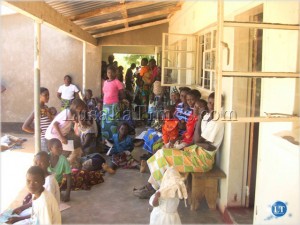 THE Government is soon expected to bring a vaccine for cervical cancer into the country and will be administered to women free of charge.
THE Government is soon expected to bring a vaccine for cervical cancer into the country and will be administered to women free of charge.
And Centre for Infectious Disease Research in Zambia (CIDRZ) has said about 1,500 women die every year in Zambia from the disease due to lack of access to the cervical screening programme by most women although the cancer screening initiative started in 2005 had helped to cushion the impact.
Ministry of Health Permanent Secretary, Peter Mwaba said an announcement would soon be made on the arrival of the vaccine, known as Gardasil, which prevents the cancer-carrying Human Papilloma Virus (HPV) mostly spread through sexual contact.
He said plans to bring the vaccine into the country were at an advanced level and that it would save millions of women in the country from dying as a result of cervical cancer, which was currently the leading cause of death among Zambian women.
Dr Mwaba said the coming of the vaccine to Zambia was a great relief and would add impetus to the fight against cancer in Zambia because the vaccine would prevent the disease from developing in recepients.
He said the vaccine was expected to arrive in the country before January monthend next year, and vaccinations would commence in February.
And CIDRZ co-director for cervical cancer prevention programme Groesbeck Parham said the centre, which offers technical assistance to the Government, would roll out the cancer vaccine demonstration project in February next year on behalf of the Ministry of Health.
Professor Parham said under the school demonstration programme, 5,600 adolescent girls were expected to be vaccinated against HPV in schools in Lusaka and the Copperbelt before embarking on a national vaccination of women.
“The purpose is to educate the Ministry of Health about the potential problems, barriers, concerns of the community and any difficulty that may arise before it could roll out a national HPV vaccine,” he said.
And Professor Parham said the introduction of the Cervical Screening Programme had helped to reduce the number of deaths from cervical cancer.
He said under the initiative which was based in Lusaka, about 70, 000 Zambian women had been screened and was expected to be scaled out to other parts of the country.
Prof Parham said the HPV prophylactic or preventive vaccine, which was approved by the World Health Organisation, and the food and drug department was invented by the US-based Merck and Company Incorporated.
He said Gardasil, a standard vaccine for prevention of cervical cancer, was invented seven years ago and so far it had proved to be effective in Uganda, Vietnam and India where it had been authorised for use.
[Times of Zambia]












